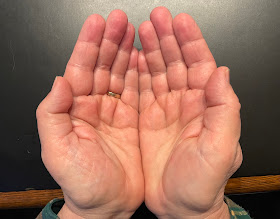“I have self-doubt. I have insecurity. I have fear of failure. I have nights
when I show up at the arena and I'm like, 'My back hurts, my feet hurt,
my knees hurt. I don't have it. I just want to chill.' We all have self-doubt.
You don't deny it, but you also don't capitulate to it. You embrace it.”
Kobe Bryant
“Our doubts are traitors and make us lose the good
we oft might win, by fearing to attempt.”
William Shakespeare
“Doubt kills more dreams than failure ever will.”
Suzy Kassem
Professional athletes have them.
So do classical writers like Shakespeare.
And people like Suzy and me.
Is there another quality that writers share in spades more than doubt? Even seasoned writers? Doubt, and specifically self-doubt, feels like a bad cold that won’t go away. After years of writing and thousands of published words, we may still doubt our ability to produce something that will resonate with readers. This post is a case in point.
The Inscribe writing prompt for January took us to Exodus 3, where Moses expresses doubt about his abilities. The Lord replies to him, “What is that in your hand?” Moses held a shepherd’s staff, an inanimate thing. And then God tells him to throw it down and it became a snake. A dead thing became a living thing, and a dangerous thing at that. So dangerous in fact that Moses runs from it! God says to pick it up by the tail and it returns to an inanimate thing.
No doubt this is a timeless story that resonates with readers.
God uses Moses’ staff to demonstrate His power.
So, what do you have?
You have:
Smarts. You are intelligent, bright, witty, and clever.
Tenacity. You finish what you start.
Accomplishments. You make the effort to be successful.
Focus. You bear down on a task.
Fervency. You are enthusiastic about publishing.
How do I know these qualities are in you?
Because you are a part of this community. You are reading, writing, posting, and publishing. You need a S.T.A.F.F. to accomplish all that.

Facing self-doubt is about throwing down your STAFF and seeing how God will transform it into life.
Vincent van Gogh said, “If you hear a voice within you say you cannot paint, then by all means paint and that voice will be silenced.”
I am a writer and use what I have to write and write and edit and write and edit and write until something readable is created. Writing is about one thing: going into a room and doing it.
Doubt is overcome by doing. I throw down my STAFF and get going.
I do because of who God created me to be.
And, as Olympian, Eric Liddell said, “I believe God made me for a purpose, but He also made me fast. And when I run, I feel His pleasure.” When we write, feeling God's pleasure is a way to dispel our self-doubt.The first time I was asked to be a ghostwriter, I doubted my ability to do justice to the person's story. The first book went very well. Ghostwriting was an opportunity to glorify God through another person's story. The initial success was followed by a second and a third, both with the same nagging doubt. My hope for 2025 will be that I get a 4th and a 5th opportunity and once again embrace and work through the doubt.
And let's not forget that some of our doubts are planted by the Adversary. The Daily Bible reading group I am in is reading from the book of Romans (Romans 8:34) about Jesus interceding for us. When doubts invade your thinking, remember that Jesus is praying for you. Throw down your staff and get going.
Your writing will do good for readers and for God in 2025. No doubt about it.
Thank you for reading.
Bob writes at
REVwords.


%20(1).heic)

.jpg)
















